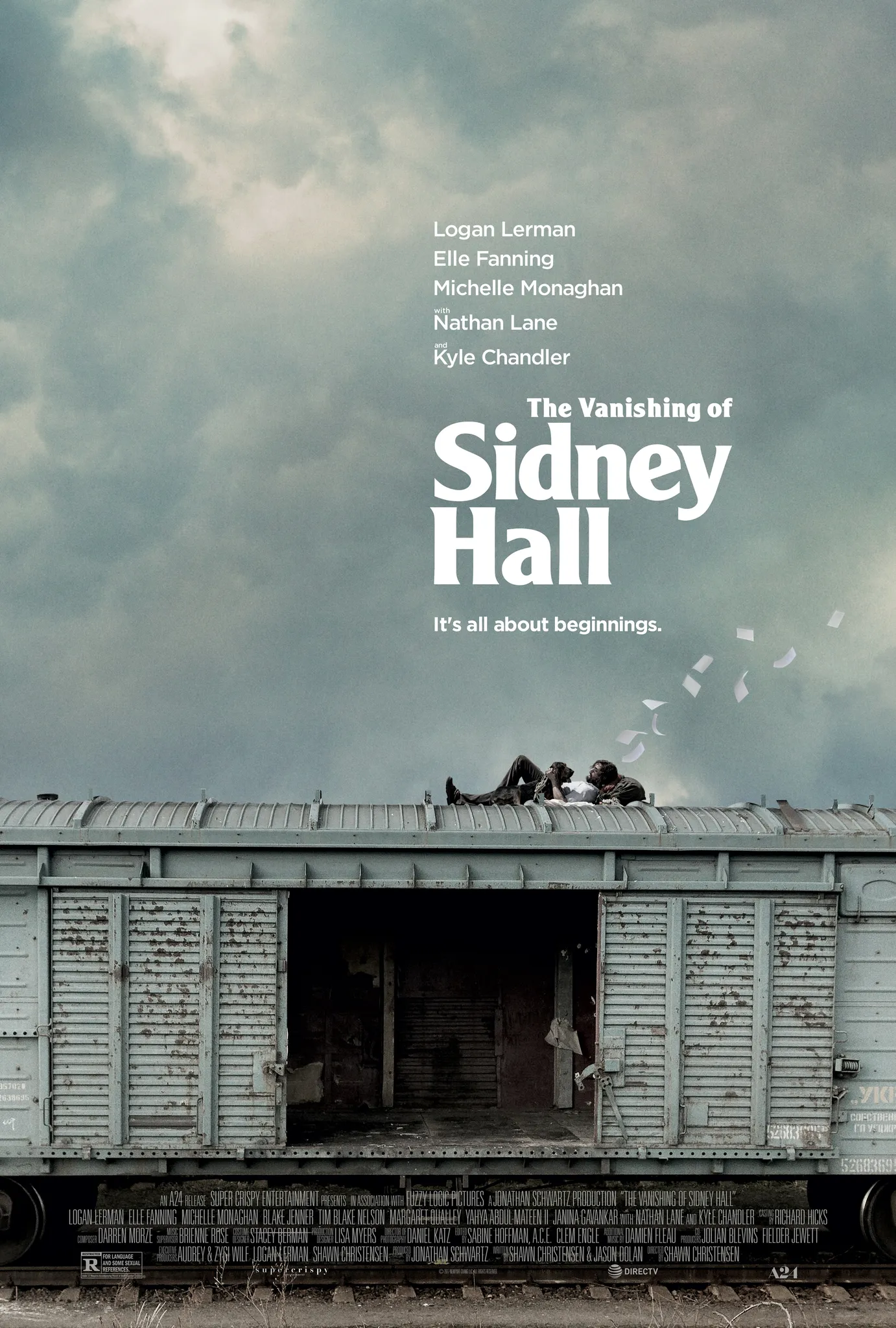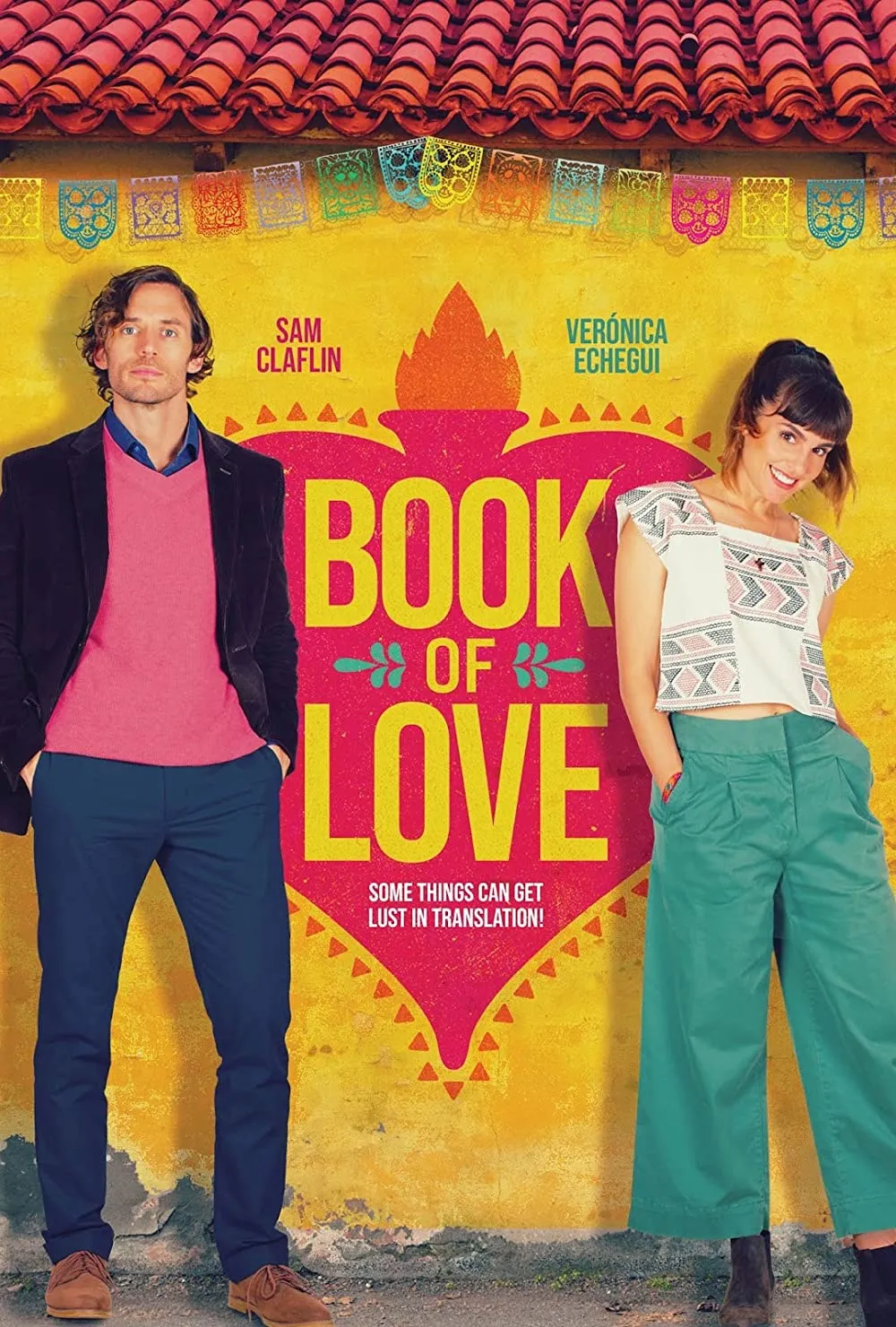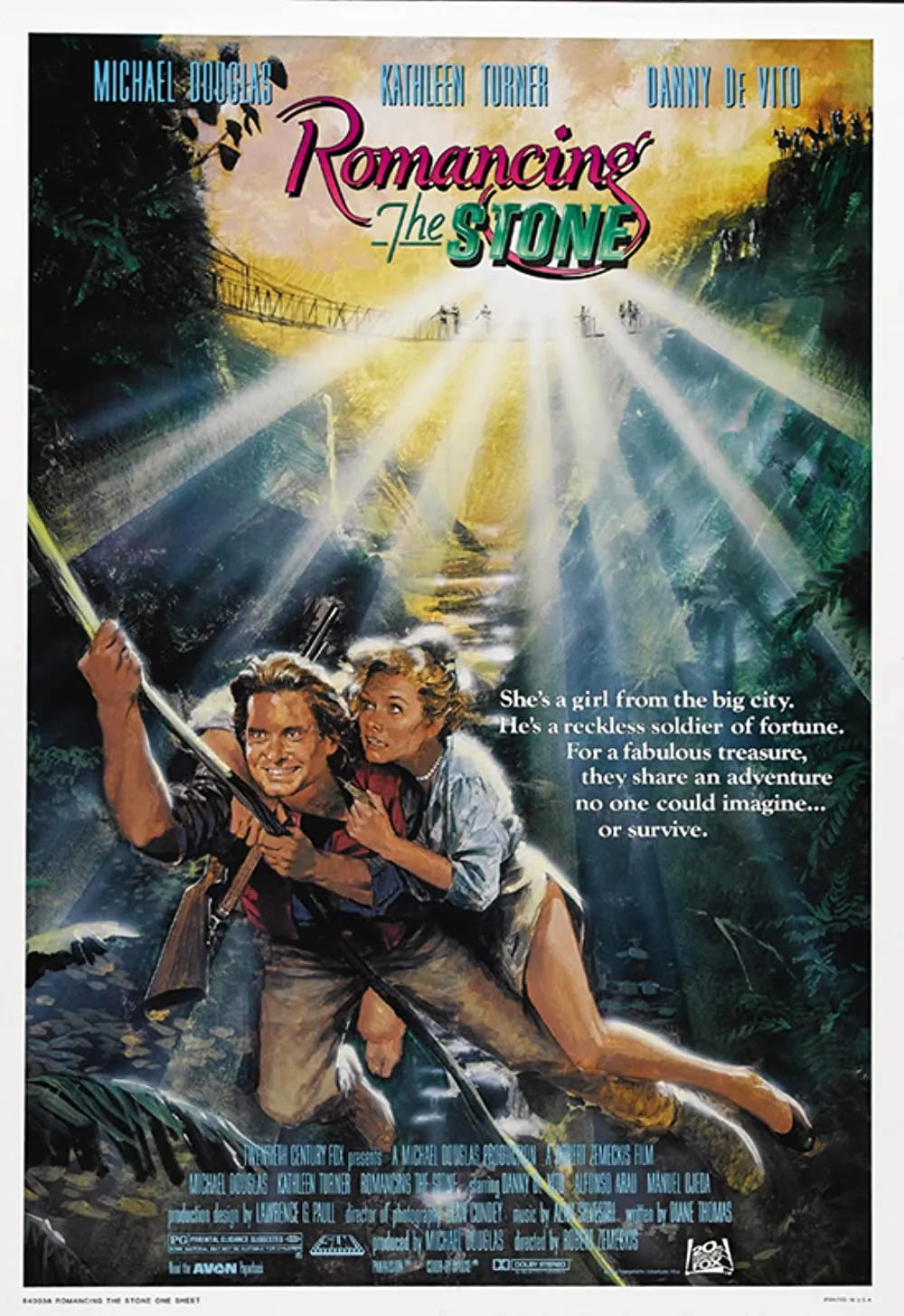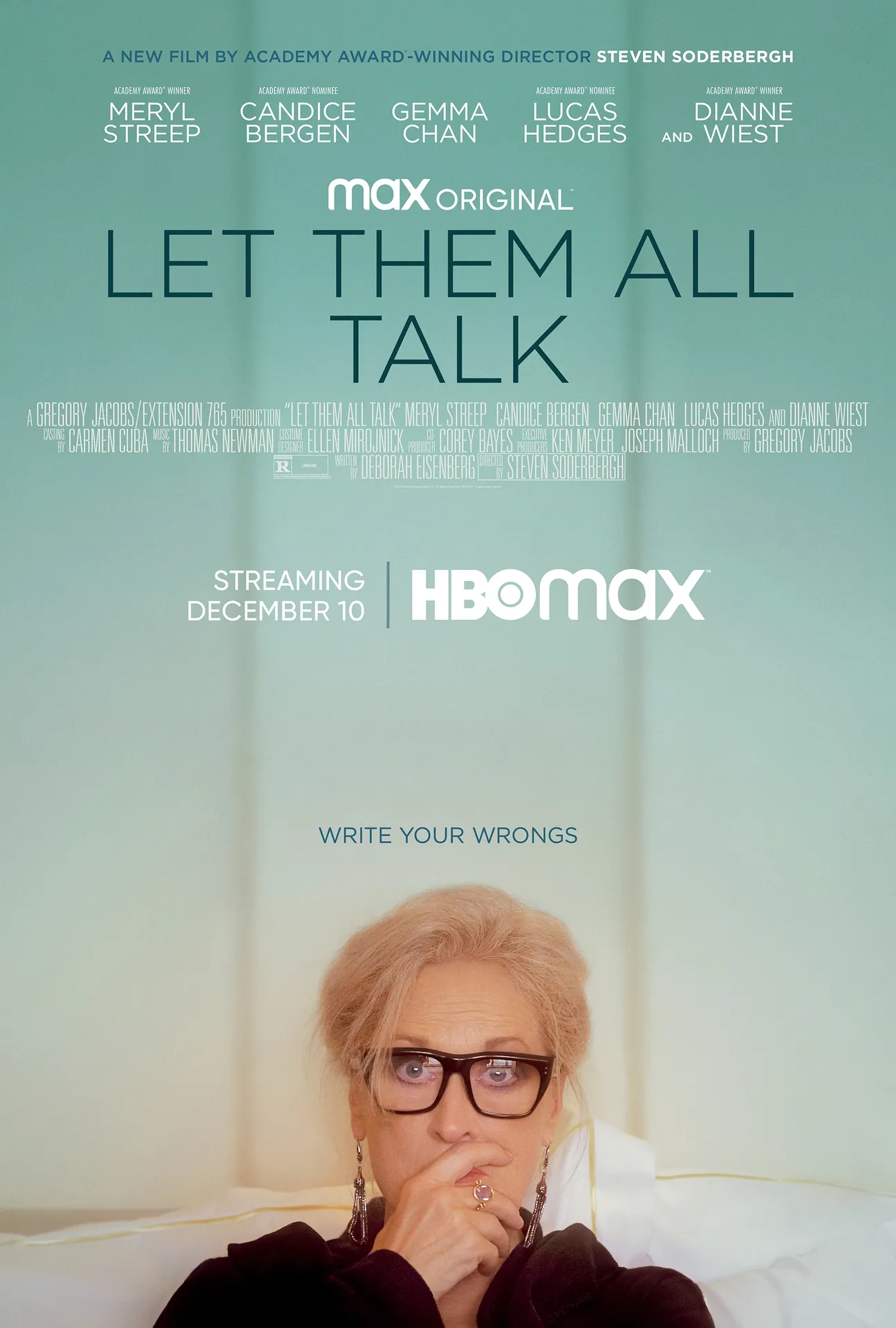
An Author Watches and Ranks 5 Movies About Fictional Authors
Lots of people dream about being a writer for a living, but what does that actually look like? I certainly didn’t have any real-life working authors to look to while growing up, and I bet most of us are in the same boat, so we turn to the next best representation: movies and TV shows. Unfortunately, movies and TV shows are notoriously unrealistic when it comes to depicting how writers live, work, and publish, because writing and publishing takes forever, and those experiences are generally not very exciting to watch on screen, nor do they fit neatly into one or two hour time slots.
Nonetheless, now that I am an author myself and I make my living by writing (although not just by writing books, because the full-time novelist who makes enough money to support themselves by book sales alone is an elusive and rare creature), I enjoy watching movies and TV shows about authors. Or rather, I enjoy yelling at the TV about how much they get wrong — they are two separate but equally enjoyable activities. The following five movies are about fictional writers of all genres and backgrounds and I’ve decided to rank them, worst to best, in a completely unscientific and highly subjective manner. Enjoy!
The Vanishing of Sidney Hall

I feel like I should be honest and just say I loathed this film. When I worked as a bookseller, there was a shortlist of books that pretentious white dudes would come in and buy and then be like, “Have you read this? You have to, it changed my life!” And the books would be by, like, David Foster Wallace and Jonathan Franzen and I would bounce off that so hard. Anyway, Sidney Hall, the writer in this film, definitely wrote one of those pretentious books. There is a scene in which Sidney, a senior in high school, reads aloud a masturbation scene to his English class. Now, I am no prude, but the way he objectifies the girl in his writing told me everything I needed to know about him as a writer.
The premise: Sidney Hall is a writer whose story is told in a nonlinear fashion. We see him as a high school student and aspiring writer, a young man in his early 20s having achieved massive literary success, and at some point in the future, when he has “gone missing” and is traveling the country as an unkempt, unhoused man with his dog. We learn that something that happened to him in high school would go on to inspire a novel that would become a commercial and literary success, but the success would burn him so hard he disappears. The precise circumstances and reasons are a part of the mystery.
Now, plenty of writers show lots of promise as high school students, and write about something traumatic that happened to them when they were young, and even publish about it at a young age and then find commercial and literary success that they then struggle to manage. I do not begrudge Sidney Hall this! However, I am side-eyeing the writer of this movie real hard for its utter lack of understanding of how publishing works.
My main beef here is that Nathan Lane, who plays Sidney’s agent, is absurd and would not be a very good agent if he were trash talking his other clients to Sidney. (Maybe agents do this! I sure as hell wouldn’t work with them!) Also, he throws a party for Sidney because his new book is…a finalist for the Pulitzer Prize. Pro tip: If you are going to write about an author, at least look up how the major literary prize they’re hoping for actually works. The Pulitzer doesn’t release a list of nominees beforehand, they announce everything in one go. (Also, you’re not allowed to call yourself a Pulitzer nominee or contender just because someone submits your work for consideration, but that’s a rant for another day.) So Sidney would not know and be as obsessed as he is about the possibility of winning the award! This irked me, big time, plus the idea that some bad press causes him to lose the award to a competitor. It becomes important later on, but by that point, I simply did not care.
Final verdict: The movie could have been good, as it did have some interesting things to say about pulling from real-life tragedy, how a work of fiction can influence people (both in good and very bad ways), and the legacies we leave behind. But messing up the Pulitzer? I couldn’t get over it.
The Book of Love

Bless Amazon Prime and Buzzfeed for bringing us a literary romcom that is delightful but bears no resemblance to how publishing actually works! Considering the premise of this book, I did not have high expectations of accuracy, but truly—props to this film for deciding to just go wild. It probably gets more wrong than The Disappearance of Sidney Hall, but it at least has the benefit of being charming.
The premise: Henry is an uptight British author who wrote a book called The Sensible Heart that is a total and utter flop in the UK. So much so that no one shows up to his readings (that’s realistic) and the bookstore runs a buy one, get three free sale on his books (how cute to imagine they’d try that hard to sell the book rather than simply return it). Then one day, Henry receives a text from his publisher asking him to pop by for a chat (BIG LOL) and when he goes in, an upbeat American woman whom he doesn’t appear to recognize and seems to take for a secretary turns out to be his publisher, and she informs him his book is a hit in Mexico. Everyone seems very surprised, but no one is more surprised than me when the publisher hands him a tablet (“It’s got an international plan!”) and sends him to Mexico the VERY NEXT DAY to go on tour there, build his presence, and sell books.
It turns out that his book was translated by one Maria Rodríguez, an aspiring writer and single mom who got a one-off gig as a translator from her friend, who is Henry’s Mexican publisher. And Maria decided that what this book needed was a bit of spicing up, transforming it from a stodgy literary fiction novel into a torrid romance that’s flying off shelves! And look, you probably think that’s what I object to in this movie, but actually, that’s pretty funny and also, there’s precedent: Reportedly Isabel Allende once had a job translating romance novels into Spanish, but was fired from it for making the heroines sound smarter. (That sounds like a public service if you ask me.) So, the translation mix-up is actually hilarious. It’s literally everything else about this movie that doesn’t make any sense.
For a bestselling author, it’s bizarre that he’s taken on a national media tour by his freelance translator in her Volkswagen bug, accompanied by her grandfather, her child, and occasionally the Mexican publisher, when he decides to cram himself in the backseat. When Henry makes some stumbling attempts at social media, sales go through the roof! (If ONLY!) His British publisher calls to tell him that the book is so successful in Spanish, they’re going to translate the Spanish version into English and re-release it. (Actual LOL.) Then, as Henry cools down over the absolute betrayal of Maria meddling with his boring book, he agrees to pair up with her to write another book. They’re given ten weeks (very tight but just believable enough for two writers to handle) and complete use of the Mexican publisher’s very fancy house (what). He often appears in the background, eavesdropping and dusting, rather than…you know, running a publishing house!
The emotional hinge this movie rests on is over whether or not Maria’s name will be on the cover, which is also hilarious and bizarre because the first thing anyone would do before letting them start writing is lock down the contracts, which would stipulate whether or not Maria gets credit. But of course, it’s at Henry’s insistence the book is published under her name as well, it’s somehow translated into Spanish, and then he goes to Mexico and does an event in which he confesses his love to Maria, who had no idea her name would be on the book until her son spotted a copy in a bookstore window mere hours before the big confession.
Oh, and all of these events happen only in a matter of months, and you know this because a pregnant lady who shows up at the beginning of the movie goes into labor at the end.
Phew.
Verdict: This is one of those movies that you clearly watch for the characters and their chemistry, because nothing they do in this movie makes any sense whatsoever.
Brazen

This Netflix movie is based off of Brazen Virtue, by the reigning queen of romance, Nora Roberts, and it stars Alyssa Milano as Grace Miller, a bestselling author of mystery and crime fiction. This was a pretty straightforward movie in terms of story and believability, hence it’s sitting in the middle of the pack, although it did have a few WTF moments for me.
The premise: Grace Miller is a mystery author who is lauded for her killer instincts for understanding crime, and her books are bestsellers. The movie opens with her at a reading in a shiny, white space that I think is supposed to convey how famous she is because of all the people in the audience? I’ll be real here: I’ve seen triple the number of people show up for Leigh Bardugo in a quarter of the space. Grace’s crowd is tame in comparison! But, I digress.
Grace is called to her childhood home in D.C., which is currently being occupied by her sister, Kathleen, who is going through a contentious divorce and is about to be engaged in a custody battle with her ex, who has deep pockets. Meanwhile, Kathleen is but a mere English teacher at a fancy private school! Grace isn’t in D.C. for long when she’s manages to snag a date with her sister’s neighbor, who just so happens to be a detective, and she returns home from the perfect night to find Kathleen murdered. It’s also revealed that Kathleen was a webcam performer, and the implication is she was murdered for her work.
This is where things go off the rails for me: Grace insists that because “knows how the police work” that she should be let in on the investigation. And they…agree? They allow her into an active crime scene to pick up some of her clothes, because she tells them she knows what she can and can’t touch in a crime scene. Later, when she wants answers from them about what they’re doing in the case, she talks her way into the investigation by implying that she solved the Times Square Strangler case. And no one at no point tells her no! I find this extremely puzzling as I have written murder mysteries but this in no way qualifies me to solve actual crimes!
The rest of the story is pretty predictable: Once Grace is in, she uses her skills of observation to piece together the crime, takes her sister’s place in order to lure the killer in, and essentially solves the (not that complex) case.
Verdict: Grace literally could have been in any other profession given how little her being a writer had any bearing on the story! The only advantage it had to her was that apparently every cop she meets has read her books and is impressed by them, which is just pure fantasy.
Romancing the Stone

This movie is less about what it means to be a writer and more of a wild adventure tale that just so happens to star a timid, indoorsy romance author, and yet there is a very important reason why it ranks this high on the list.
The premise: Joan Wilder is a bestselling romance author living in New York City. She’s single, and seems to be rather lonely. Her sister lives in Colombia, where her husband has just been murdered. Soon after finishing her latest novel and delivering it to her editor, Joan receives a mysterious package from her murdered brother-in-law and her sister calls and tells her she must bring it to Cartegena because she’s been kidnapped by some very bad people who want that package. Joan is frantic to save her sister and hops on the next plane. But once she arrives in Colombia, she gets on the wrong bus, and finds herself lost in the countryside, which is how she encounters Jack, a bird smuggler, and the two strike up a deal to get her out of the jungle and to Cartegena.
This is a bit of an absurd adventure comedy and there’s a lot to raise brows at, but I find myself not really nitpicking about the writing aspect much at all, aside from the fact that Joan Wilder is so famous that her books are known by a drug lord she encounters on another continent. However, that’s not the most absurd thing found in these movies!
What makes this movie rank so high is the opening scene, which is the single most realistic depiction I’ve ever seen of what it’s like to finish a draft. Joan is narrating the finale of her book as it plays out on the screen, and as it ends the screen fades to her, crying at her typewriter because she is moved by her own story. She’s wearing a plaid nightgown, fuzzy socks, and slippers. Her hair is in a messy ponytail. As she wanders her apartment in happy tears looking for tissues, she finds multiple notes to herself and absolutely no tissues, TP, or even paper towels, so she blows her nose on a sticky note. She tearfully informs her cat she’s finally done, and they must celebrate. And that celebration? Totally ends up being Joan feeding her cat soft food while she lights candles and pours herself a drink.
I’ve never felt so seen before.
Verdict: It’s absurd, but it contains one of the truest scenes of just how emotional and boring a writer’s life actually is, and for that I will always think of Joan Wilder fondly.
Let Them All Talk

Now, some of you might be surprised that I have this ranked as most believable when you read the premise, but I assure you it’s not just because it stars Meryl Streep and Streep’s acting could convince me of pretty much anything.
The premise: Alice Hughes is a literary novelist in her late ’60s/early ’70s who has won a prestigious prize, but cannot attend the ceremony in England because she can’t fly. Her literary agent has just retired and her successor, an eager young woman named Karen, is desperate for her next novel. Wanting to keep Alice happy, Karen arranges for Alice to travel on a luxury cruise from New York to the UK in order to accept the award. Alice negotiates some bonus cabins and decides to bring along her nephew and two of her oldest friends, who she hasn’t seen in 35 years.
So, the idea that an author who can’t fly would get a luxury suite on a cruise ship in exchange for doing some talks onboard is actually not as far-fetched to me as some other premises, and the fact that her literary agent could pull that off was believable enough for me. If the author is famous and well-established enough, I can see it. We are pushing on the limitations of my suspension of disbelief that she also negotiates for three bonus free cabins, but that’s just me being picky!
In fact, this movie felt pretty realistic to me in all of its cringy-ness, with one major exception: Alice can’t seem to stand Karen, her long-time agent’s successor. While Karen’s desperation to win Alice over is plausible enough (the agency wants to keep her as a client, any future book deals would surely earn Karen and the agency a small fortune), I don’t get why Alice didn’t simply dump Karen. She is a Pulitzer Prize–winning novelist (they don’t mess up the Pulitzer here, bless) and her books have been adapted multiple times. She’s accepting a fictional prestigious award! Any agent would be dying to sign her. She doesn’t have to stick with Karen if she doesn’t like!
But she doesn’t, because Alice is unable to let go of her idealized version of reality, and she lives in her own world. That becomes painfully obvious when she arrives onboard the ship and appears to have little interest in reconnecting with her friends, preferring to spend the day working and swimming, and only seeing her friends at dinner. Meanwhile, her old friend Roberta is deeply bitter that Alice used details of her life to write her award-winning novel 40-some years ago, thus derailing Roberta’s life. Karen, hoping that Alice is writing a sequel to said award-winning novel, boards the ship in the hopes of…getting an early look?? That part makes very little sense, but the simmering tension between Roberta and Alice, and Alice’s complete lack of awareness was entertaining — and in fact very believable. (Bad Art Friend, anyone?)
Verdict: I did not expect a movie about a writer getting a free cruise in exchange for a talk to be the most believable of the bunch, but here we are! I had some minor quibbles, but overall, this movie felt very real. Also, if any cruise ship director wants to give me a free cabin in exchange for some talks, hit me up!
In conclusion, I just love movies about fictional authors! The more unrealistic, the more hilarious. I can’t wait for The Lost City starring Sandra Bullock and Channing Tatum, which is sure to be a delightfully unrealistic romp about a romance novelist and her cover model who get kidnapped by Daniel Radcliffe! I legit thought it was a Romancing the Stone remake when I first saw the trailer, which would also be delightful.











